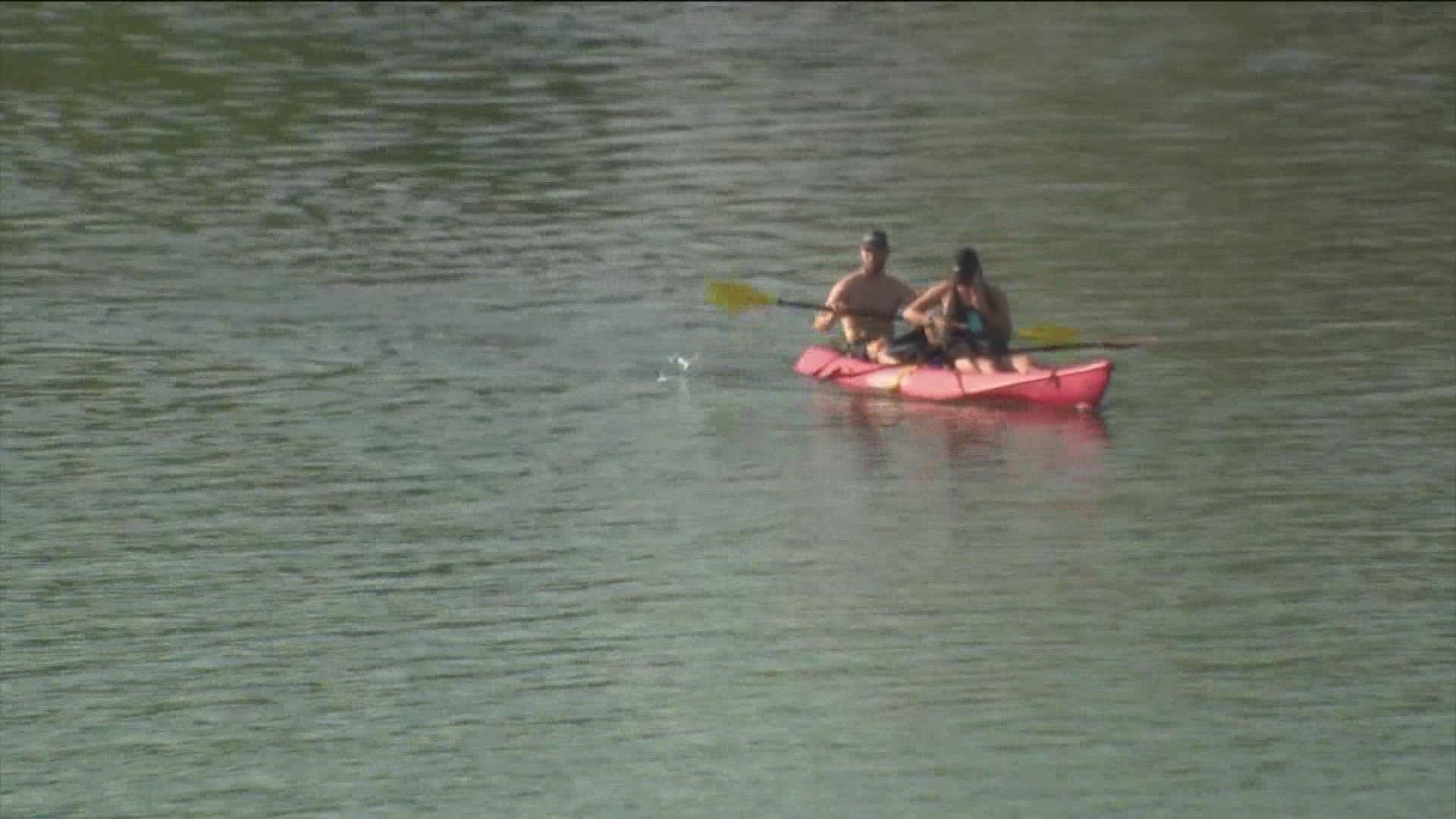AUSTIN, Texas — Algae samples collected from sites on Lady Bird Lake and Emma Long Metropolitan Park last week were found to contain a kind of neurotoxin, according to the City of Austin.
Samples taken from Lady Bird Lake on June 27 and from Emma Long Park on June 29 contained a neurotoxin called homoanatoxin.
The City reported that algae samples collected from Walsh Tarlton and Jessica Hollis Park did not contain toxins. However, the City said harmful algae may be present in other locations with hot temperatures being the norm in the area.
Such algae could be present, especially in pockets of slow-moving water on the lakes or in creeks, the City warned. People and pets are told to avoid swimming in areas with algae or in water that is warm, stagnant or has scum and film.
The development comes after the Watershed Protection Department began treating Lady Bird Lake for harmful algae following a May 30 sample taken from Red Bud Isle that was found to contain blue-green algae.
Treatment using thousands of pounds of a clay material called Phoslock, along with testing and lab work, was expected to cost $300,000. Phoslock makes it hard for algae to feed and survive, reducing the amount of harmful algae. Even with the treatment, the department said the harmful algae could still be present.
The City shared recommendations to keep people and pets safe from algae and other bacteria and parasites that could be in the water:
- Do not drink water directly from natural water bodies.
- Avoid contact with algae.
- Rinse skin or animal fur after contact with water.
- Do not allow dogs to lick their fur prior to rinsing.
PEOPLE ARE ALSO READING:

